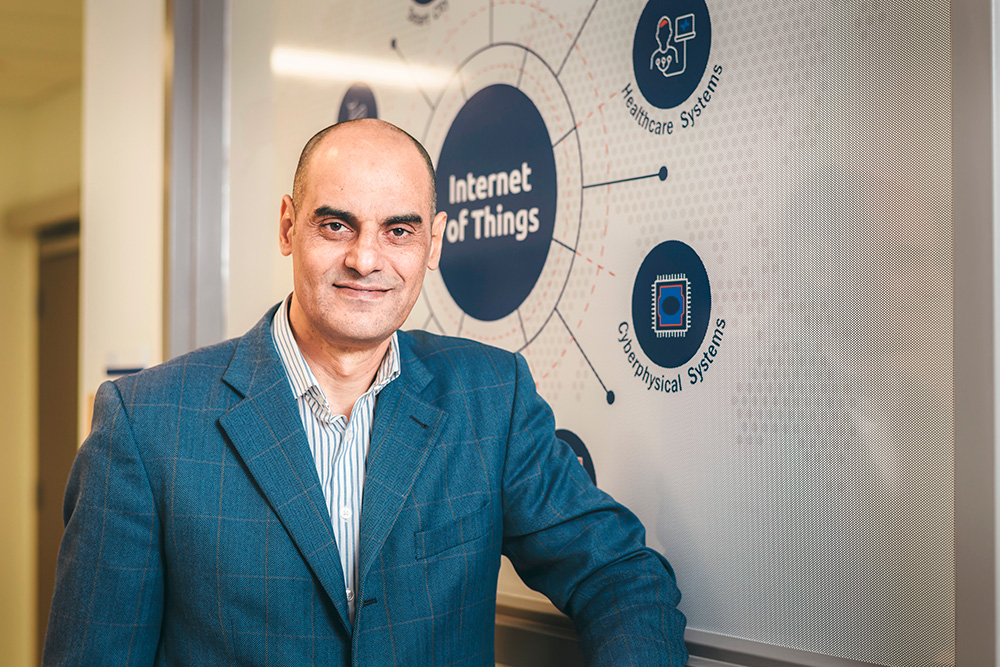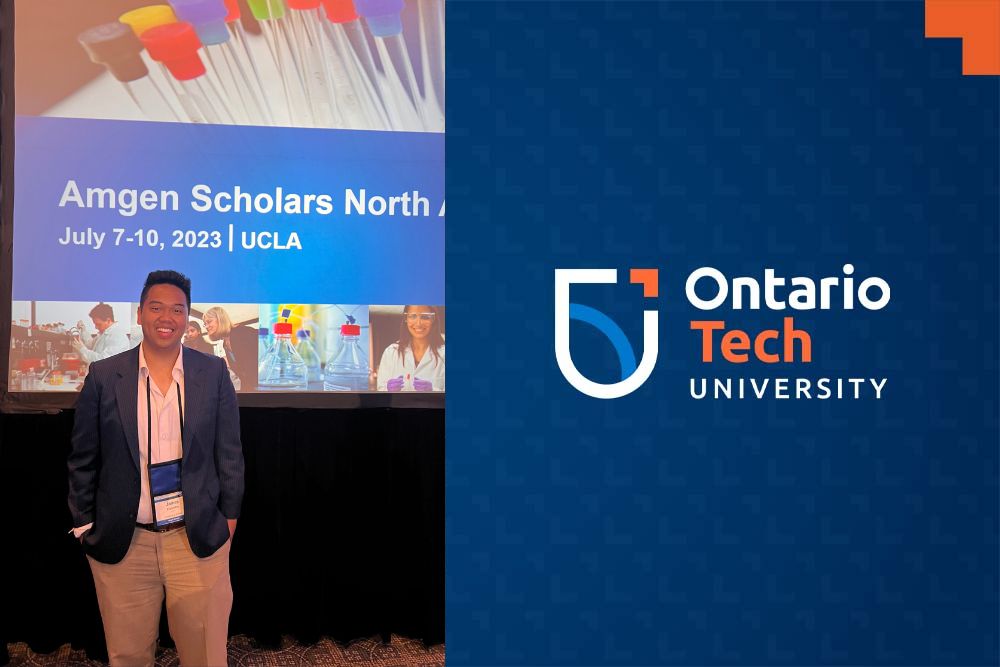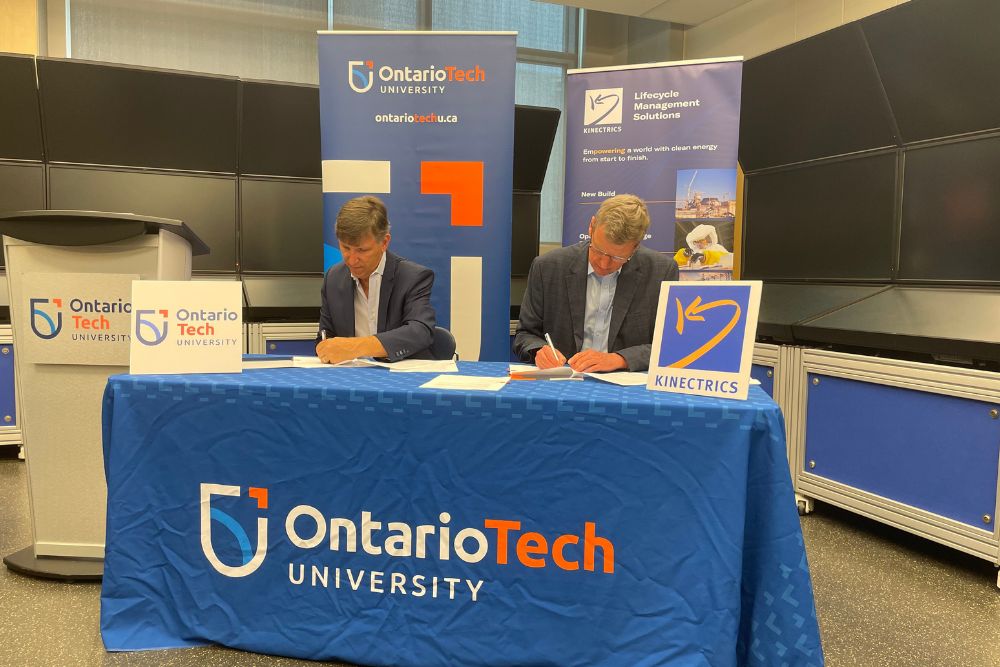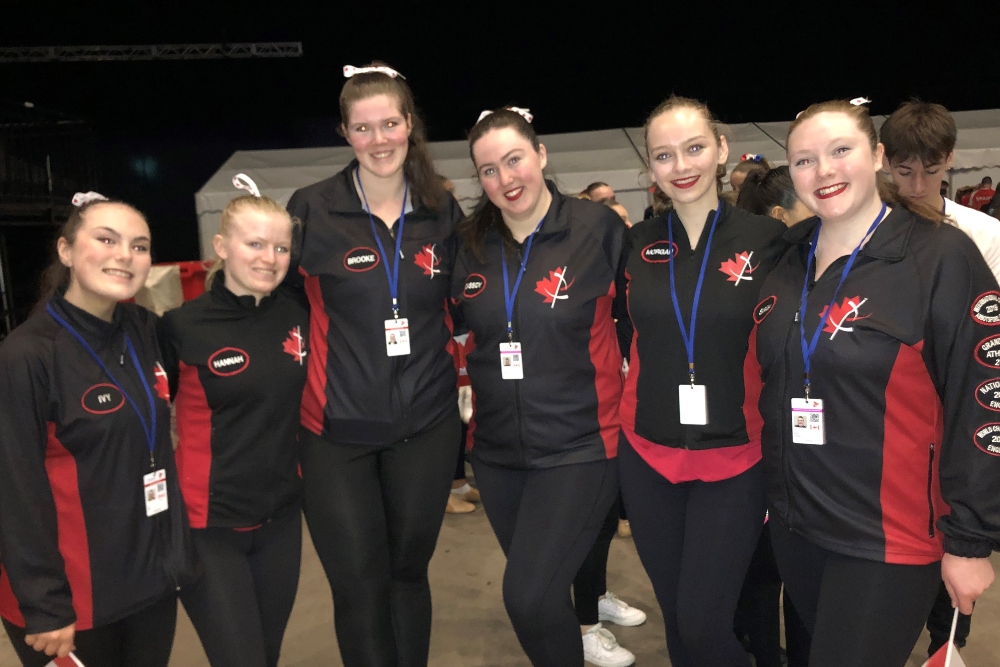UOIT PhD candidate to attend World Nuclear University Summer Institute
Nuclear Engineering student to train in Sweden with the nuclear industry’s best
May 19, 2017
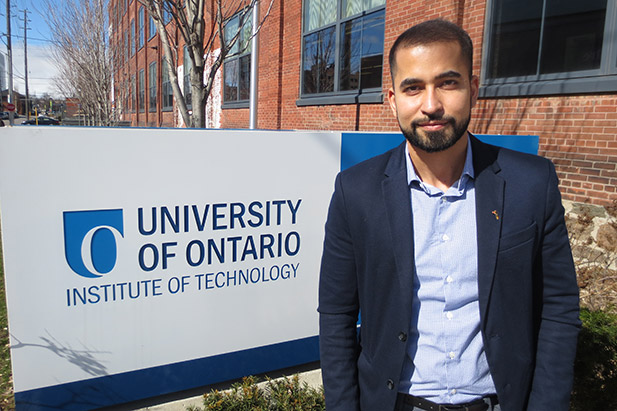
Jawad Haroon’s academic journey at the University of Ontario Institute of Technology has been filled with many incredible opportunities and experiences. Haroon, who has already earned a Bachelor of Engineering (Nuclear Engineering, 2008) and a Master of Applied Science (Nuclear Engineering, 2014) from the university, is now working on his PhD.
This year, Haroon will become the first student from the university to participate in the World Nuclear University (WNU) Summer Institute in Uppsala, Sweden. The WNU is a worldwide network of nuclear education and research institutions, offering training opportunities for future leaders on nuclear energy, radioisotope production and applications of ionizing radiation in medicine and industry.
The WNU Summer Institute is a six-week long training program that provides nuclear professionals an opportunity to develop skills in leadership, communication and organization. The curriculum explores a global perspective on the full spectrum of issues surrounding nuclear energy.
“To be part of an exclusive group of about 70 people from around the world, and work collaboratively with so many experts is a spectacular privilege,” says Haroon. “I have much to be thankful for, especially the support of my PhD supervisor, Dr. Eleodor Nichita, as well as the new Dean of the Faculty of Energy Systems and Nuclear Science, Dr. Akira Tokuhiro.”
Haroon’s PhD work focuses on helping Canada remain a world leader in the production of medical isotopes. The reigning domain of the former Atomic Energy of Canada Limited (AECL, whose commercial reactor division later became Candu Energy Inc.), the country’s old AECL medical isotope reactor in Chalk River, Ontario, will be permanently shut down in 2018.
“The Chalk River closure will leave Canada with a huge void in medical isotopes, with no new research or production on the horizon,” explains Haroon. “But we have many nuclear reactors elsewhere that are producing electricity. I am exploring ways to modify the fuel design of existing CANDU nuclear reactors in order to capture the isotope Molybdenum-99 from the fission of uranium, with no impact on power production. Molybdenum-99 is the parent radioisotope needed to produce the isotope traditionally used in many medical procedures.”
Haroon’s PhD research is the latest chapter of an exciting and accomplished academic journey that began in 2004. Born in Pakistan, a proud graduate of Lincoln Alexander Secondary School in Mississauga, and the first person from his family to go to university in Canada, Haroon decided to enrol at the recently opened University of Ontario Institute of Technology. Even before his undergraduate Convocation in 2008, he had already lined up his first job with AECL. Shortly after beginning his master’s program on a part-time basis in 2011, Haroon was offered a contract position with Bruce Power in Tiverton, Ontario where he worked on upgrading Bruce Power’s training simulators.
“I chose the University of Ontario Institute of Technology for graduate studies because of the unique structure of the program, which allows me to study part-time and online, but also simultaneously work in the industry. This flexibility has offered me the best of both worlds–to advance my education and gain a wide range of experiences in the workplace. The WNU experience in Sweden is certain to continue expanding my horizons and future opportunities.”
